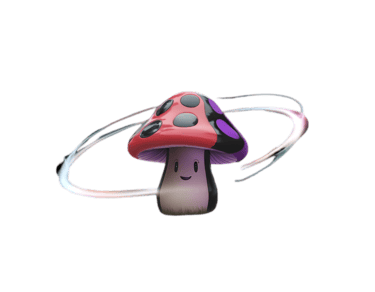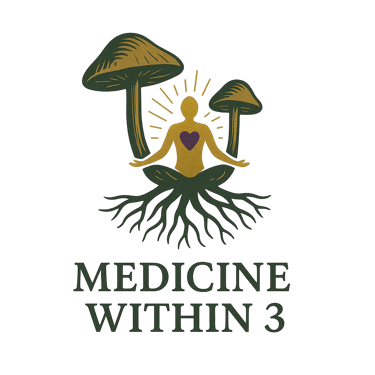feather
Why Addictions Are More Than Bad Habits - Psilocybin’s Power in Addiction Recovery
Discover how psilocybin can help heal addiction by rewiring the brain, addressing root causes, and supporting long-term recovery through connection and integration.
ADDICTION HEALING
MW3
8/5/20256 min read


Why Addictions Are More Than Bad Habits
When you hear the word “addiction,” you might picture someone making poor choices over and over again. But Gabor Maté, a doctor and trauma expert, would tell you that this idea misses the whole point. Addiction is not about being weak or lazy — it’s about trying to solve a deeper problem in the only way your brain currently knows how.
Addiction as a Coping Mechanism
According to Maté, every addiction starts as an attempt to relieve pain. Whether it’s alcohol, cigarettes, social media, gambling, or heroin — people turn to these things because they change how they feel. The problem isn’t the initial relief; it’s that over time, the brain starts to depend on the substance or behavior for comfort.
If you’ve been through trauma, stress, or emotional neglect, your nervous system may feel like it’s always in overdrive. In that state, a drink, a cigarette, or even a chocolate bar can feel like hitting a pause button. You’re not seeking the thing itself — you’re seeking the state it gives you. That’s why simply telling someone to “stop” doesn’t work. You can’t remove the crutch without helping the leg heal first.
The Brain’s Chemistry and the Roots of Craving
Paul Stamets often compares the human brain to a mycelium network in a forest. When it’s healthy, connections are strong and messages flow easily. But trauma, stress, and repeated substance use can block pathways and shrink your brain’s ability to produce its own feel-good chemicals.
Dopamine — your brain’s “reward signal” — gets thrown out of balance. Over time, normal pleasures like a hug, a walk in the park, or a good conversation stop triggering the same joyful buzz. The brain starts demanding bigger hits of stimulation just to feel “normal,” which is why people often escalate their use over time.
It’s not about chasing a high. It’s about chasing relief from the flat, restless, or anxious state that follows when the brain’s reward system is out of sync.
Addiction as Disconnection
Maté’s work points to one big truth: the opposite of addiction is not simply abstinence — it’s connection. Connection to yourself, to others, and to something meaningful. Addiction thrives in isolation and weakens in community.
David Arora might put it this way: mushrooms thrive in networks, sharing nutrients and signals between trees. Alone, they can still survive, but they won’t grow into the powerful, interconnected system that sustains a forest. Humans are the same. When life severs our connections — through trauma, neglect, or loss — we become more vulnerable to finding artificial substitutes for belonging.
Why Willpower Alone Doesn’t Work
If addiction were just a bad habit, willpower might fix it. But when your brain has rewired itself around a substance or behavior, willpower is like trying to hold back a river with a paper dam. The moment stress or loneliness hits, the current bursts through.
That’s why long-term recovery often needs more than just “trying harder.” It needs a way to restore balance in the brain, heal the pain underneath, and rebuild meaningful connections in life.
How Psilocybin Fits In
This is where psilocybin shows promise. Research inspired by Paul Stamets’ studies on neuroplasticity suggests that psilocybin can help the brain grow new connections and restore old ones. By quieting the Default Mode Network — the part of the brain that loops repetitive thoughts — psilocybin can create space for new perspectives.
People often describe seeing their addiction not as an enemy, but as a messenger pointing to an unmet need. This shift in perspective can be the first step toward healing the underlying wound instead of just battling the symptom.
And because psilocybin can temporarily boost emotional openness, it can help people reconnect — to their own bodies, to their feelings, and to others — without the constant static of craving.
The Bigger Picture
Addiction is not a moral failure. It’s a deeply human response to pain, disconnection, and unmet needs. It’s a sign that somewhere in your system, there’s a longing for balance, comfort, or belonging that hasn’t been met.
The good news? Your brain and heart are capable of change. Just as mycelium revives damaged soil, your nervous system can grow new pathways for connection and joy. Psilocybin, when used safely and intentionally, can be one tool in that process — helping to clear the old, hardened patterns so something new can take root.
How Psilocybin Supports Lasting Change
Breaking free from addiction isn’t just about stopping the substance or behavior — it’s about creating a life where you no longer need it. That’s where psilocybin can play a unique role, not as a magic fix, but as a catalyst for lasting transformation.
Rewiring the Brain for New Possibilities
Paul Stamets’ research highlights psilocybin’s ability to promote neuroplasticity — your brain’s capacity to form new neural pathways. Imagine your mind as a network of forest trails. Addiction wears deep ruts into one narrow route, making it hard to turn elsewhere. Psilocybin works like gentle spring rain, softening the hard ground so you can carve new paths. This creates space for healthier habits, more balanced emotions, and different choices.
Addressing the Root Cause, Not Just the Symptom
Gabor Maté reminds us that addiction is rarely about the substance itself — it’s about the pain underneath. Psilocybin, in a safe and supportive setting, often helps people access suppressed memories, emotions, or beliefs driving their dependency. This isn’t about reliving trauma for the sake of it — it’s about seeing it with fresh perspective, compassion, and a sense of agency you might not have felt before.
Boosting Emotional Openness
One of psilocybin’s most remarkable effects is its ability to dissolve emotional walls. In addiction recovery, this openness can be a game-changer. It allows for genuine self-reflection without the usual defensive shields. You might notice yourself speaking more honestly with loved ones, or feeling more empathy for yourself, even in moments of relapse or struggle.
Strengthening Connection and Belonging
David Arora often talks about how fungi weave underground connections that nourish entire ecosystems. Psilocybin experiences can spark a similar reconnection — to nature, to community, and to your own body. For many in recovery, this renewed sense of belonging is what keeps them moving forward when old cravings resurface.
Integration: Making Change Stick
The weeks and months after a psilocybin experience are where the real work happens. Integration means taking the insights you’ve gained and anchoring them into daily life — through therapy, journaling, creative projects, or community support groups. Without integration, the insights risk fading like a vivid dream. With it, they can become the foundation for lasting freedom.
Building a Support System After the Journey
A powerful psilocybin experience can open new doors in your mind, but the path beyond those doors is where the real transformation happens. To keep momentum in addiction recovery, you need a support system that nurtures the changes you’ve made and helps you navigate challenges when they arise.
Why Support Matters
Gabor Maté often says that healing doesn’t happen in isolation — it happens in connection. Addiction thrives when you feel alone, misunderstood, or cut off from meaningful relationships. A strong support network acts like a safety net, catching you during moments of vulnerability and reminding you of your progress when self-doubt creeps in.
Choosing the Right People
Your support system doesn’t have to be huge. It’s about quality, not quantity. You might include close friends or family who respect your healing journey, a therapist who understands psychedelic integration, or peers in recovery communities. The key is surrounding yourself with people who listen without judgment and encourage your growth.
Integrating Community Practices
Paul Stamets might compare a healthy support system to a thriving mycelial network — everyone is connected, sharing resources and energy. Joining regular check-ins, group meditations, or creative workshops can help you stay grounded and inspired. In some cases, people find a sense of belonging in nature-focused communities, wellness circles, or harm-reduction organizations.
Ongoing Self-Support
While external support is essential, it’s equally important to cultivate self-support practices. This might include journaling about your triggers, meditating to reconnect with your intention, or spending time in nature — a practice David Arora champions for its grounding effects. Think of these habits as the daily watering and sunlight your new mental pathways need to stay strong.






Medicine Within 3
Experience transformation through healing and Mushroom
Connect
© 2025. All rights reserved.
